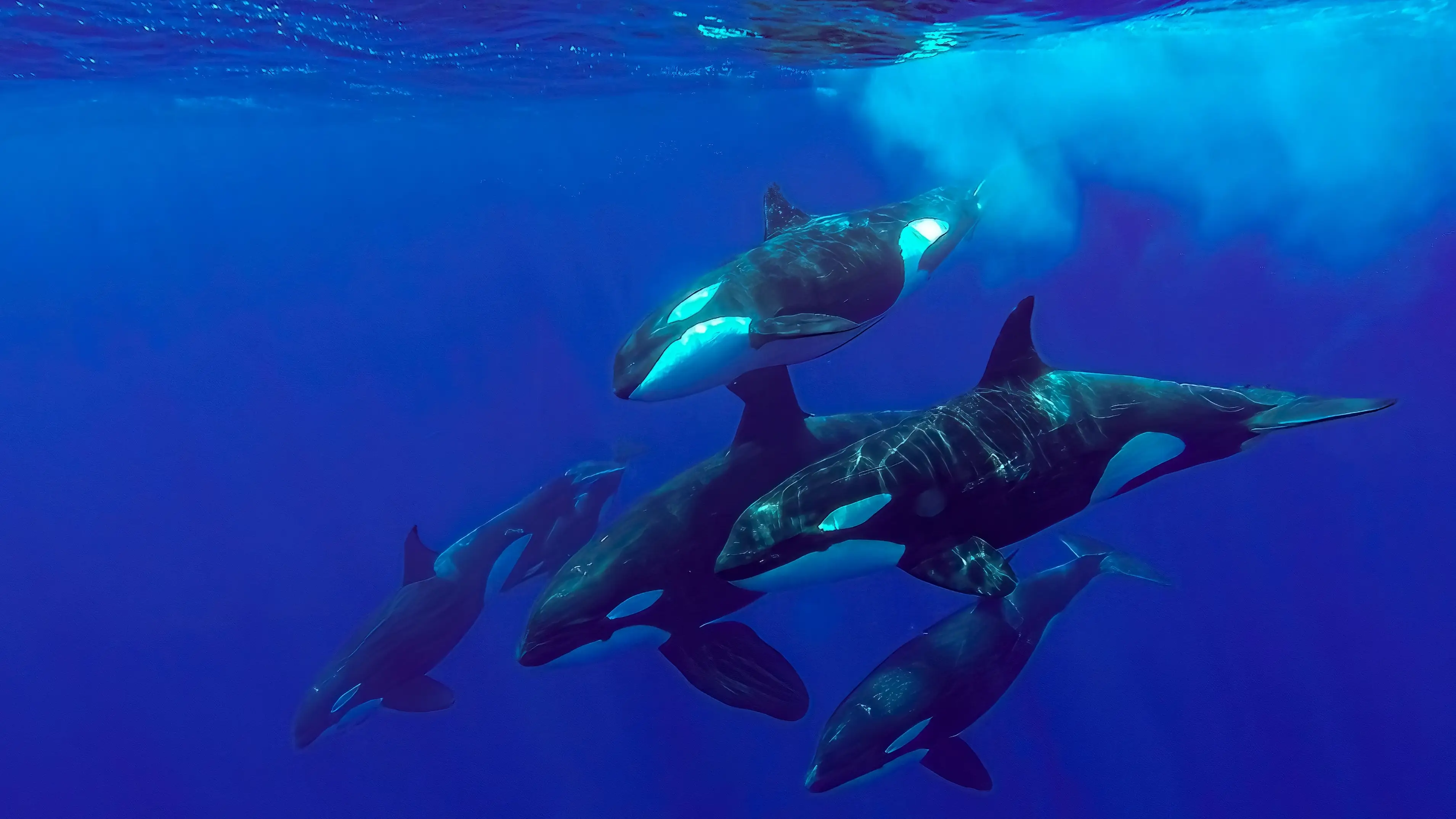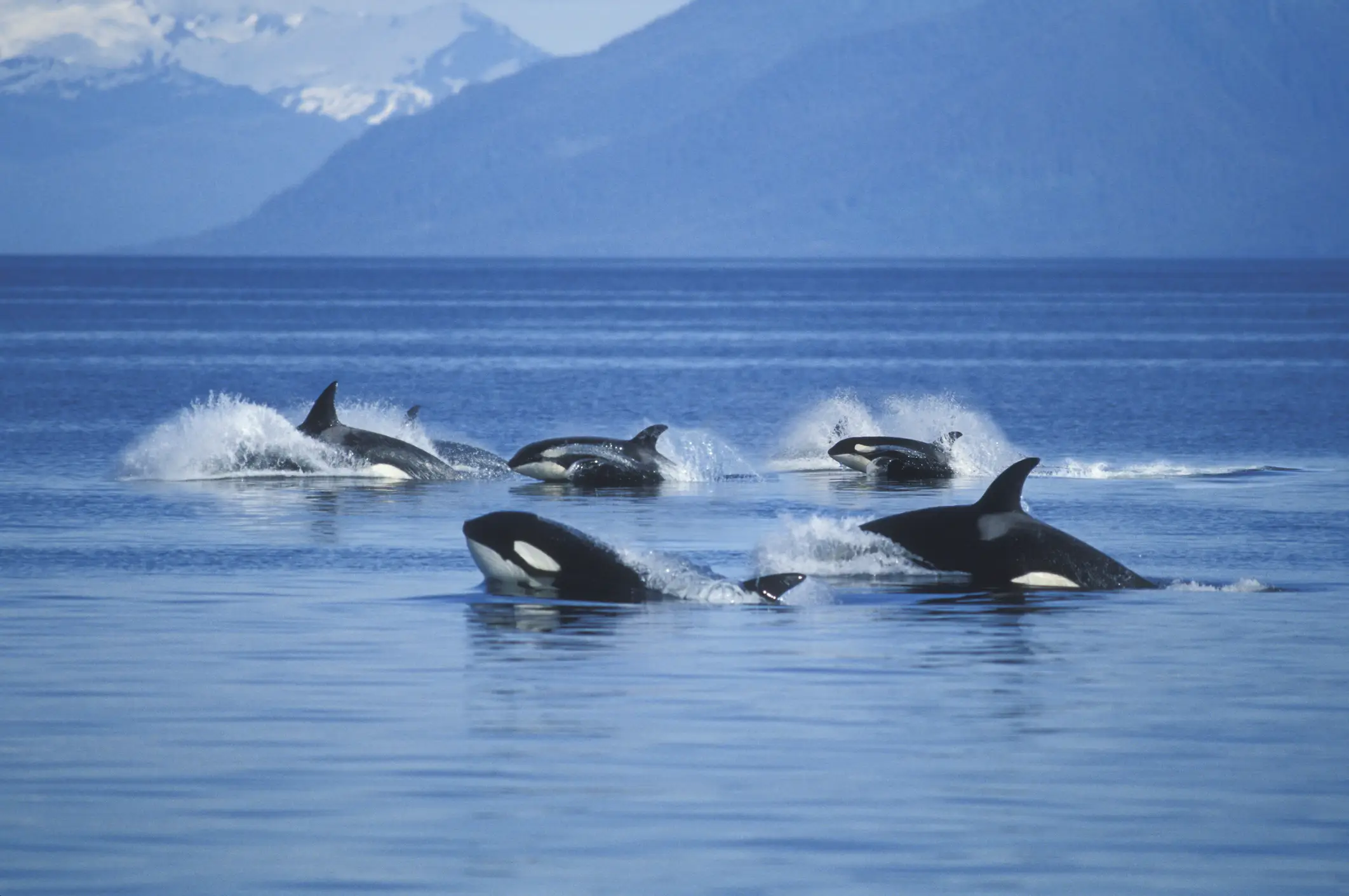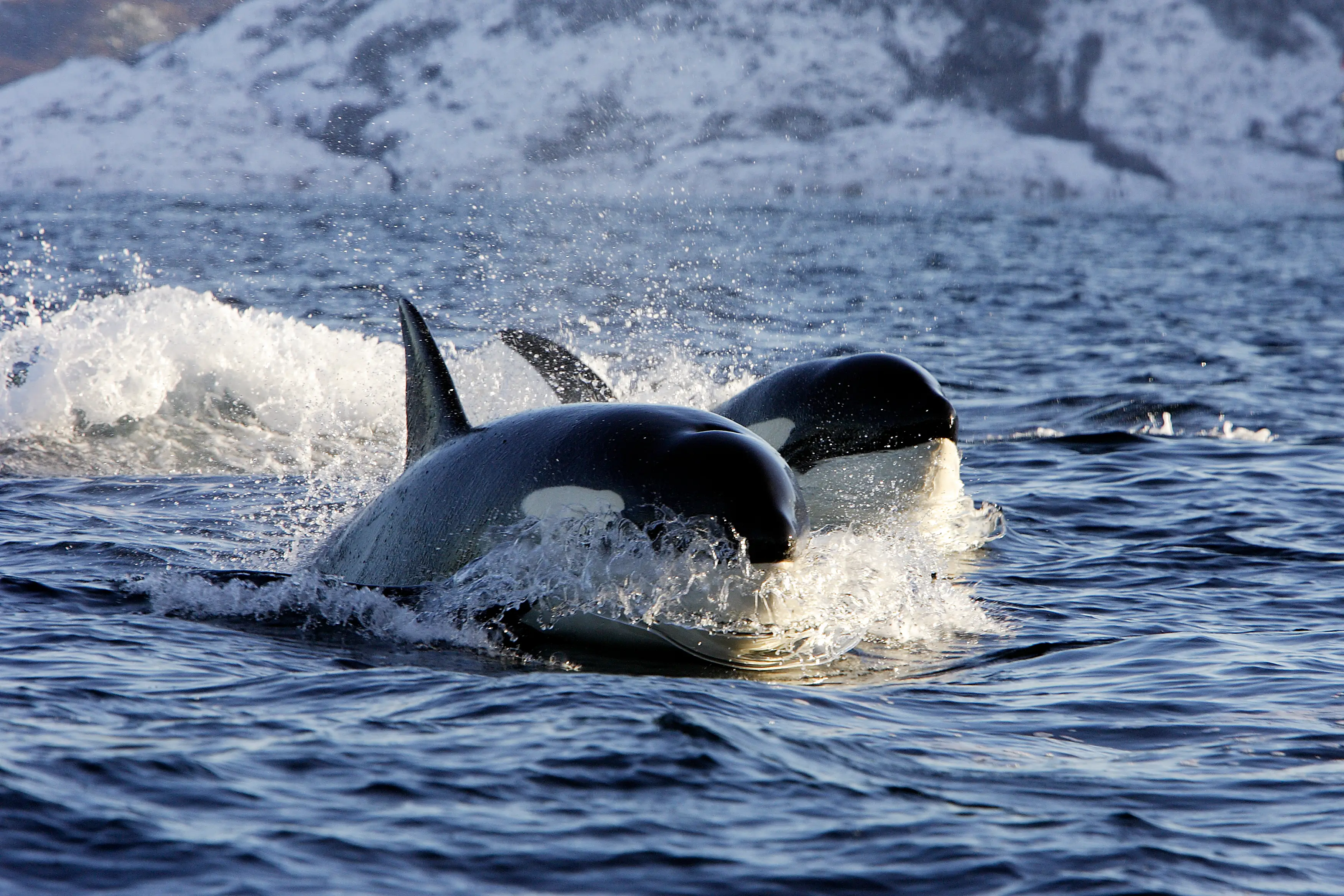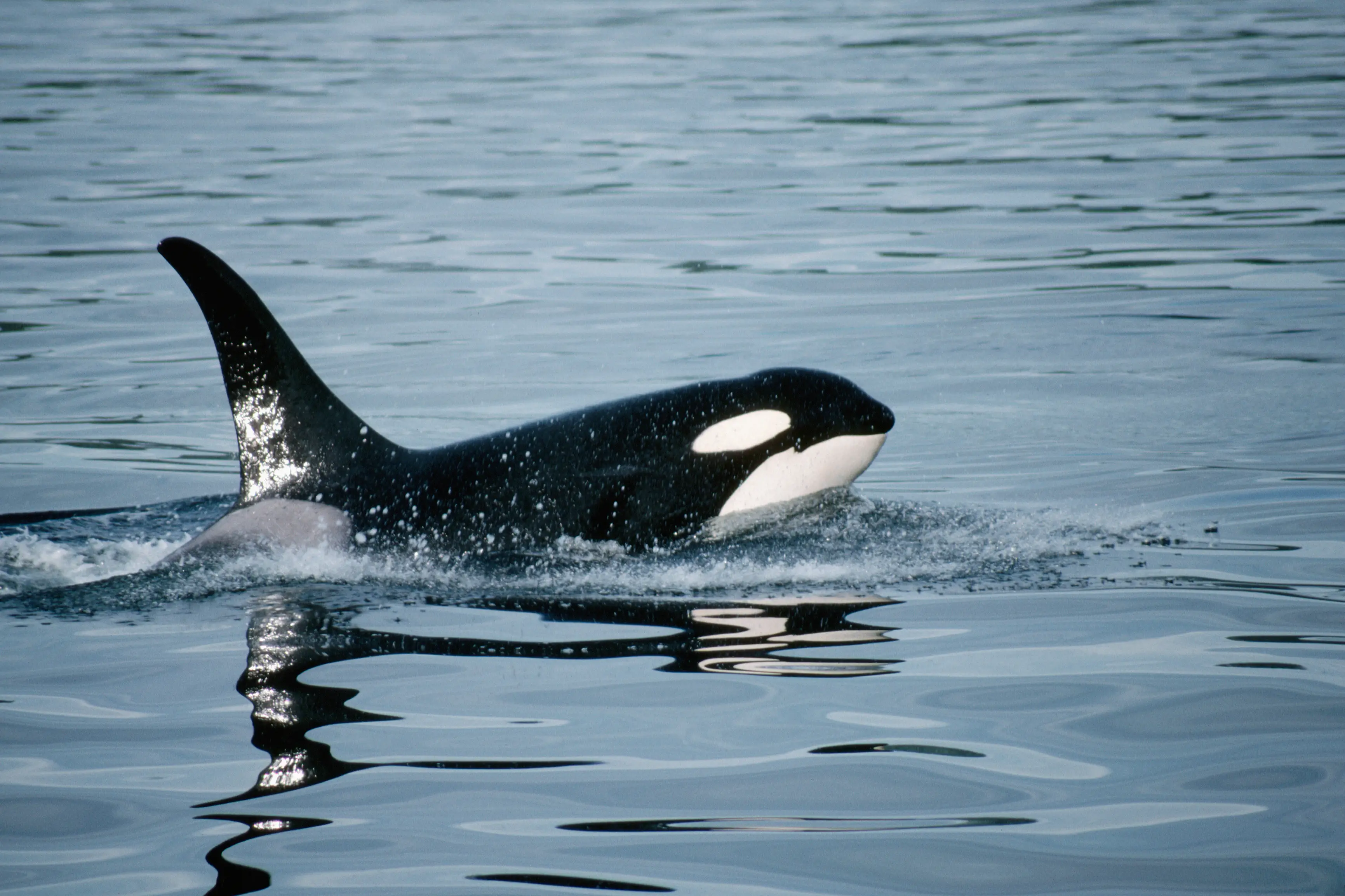
There is so much we don't know about the natural world and the plants and creatures living in it, and orcas have managed to surprise scientists once more.
The intelligent whale species had previously been discovered to 'imitate' human speech, but a new type of behavior has left researchers baffled.
As part of a recent study, a group of killer whales were observed mutually grooming each other with a type of seaweed.
It's a landmark moment, as it's being recorded as the first time marine animals have used tools in such a way.
Advert
Previously, this specific behavior had only been seen in primates and humans, with chimpanzees and tamarins having been previously recorded using sticks as tools.
The researchers, using drones kitted with cameras, spotted a group of orcas biting off bits from a marine plant called bull kelp. They were then seen rolling the stems of these plants between their bodies, and they believe it was being done to help remove dead skin or parasites from each other.

The unusual and previously seen behavior has now been documented in a new scientific paper published in the journal Current Biology.
Some 72 killer whales were being monitored in the southern part of the Salish Sea.
One whale was documented removing a 2ft long section of bull kelp. After biting it off, the whale then balanced the kelp before approaching another whale and wedged it between them, before rubbing against it.
Initially, researchers believed it was a one-off limited to just one individual whale - but this was before they noticed others were doing it too.
Michael Weiss, the research director at the Center for Whale Research and the study’s lead author, explained how they noticed the behavior wasn't a one off, saying the 'realized this was a common, frequent behavior, which was a very exciting moment'.
"We realized we had stumbled across a newly described behavior, which is remarkable," Weiss explained. "You don’t even think it is a possibility to find something new like this when you’re observing whales."

"It doesn’t surprise me that they have these intricate social interactions because we know they develop deep bonds between each other, that they are very smart and they figure out problems in their environment."
Scientists had previously seen whales draping kelp over themselves, in a behavior referred to as 'kelping'. However, this new behaviour is different because the whale appear to be carefully selecting and trimming it first, before using it between themselves.
The new method has been dubbed 'allokelping'.
Apparently, the practice took place just within the whale pod, but researchers noticed it was most commonly shown by whales of a similar age and were closely related.
They also had a lot of dead skin, leading scientists to suggest the action was being done in the same way humans exfoliate our skin. As well as removing the dead skin, it was also suggested the practice helps to keep the whales free of parasites.

It was also seen to help the whales to bond and strengthened their connections in the same way humans and monkeys do.
According to Darren Croft, a researcher at the University of Exeter and executive director of the Center for Whale Research, 'touch moderates stress and helps to build relationships'.
"We know killer whales often make contact with other members of their group, touching with their bodies and fins, but using kelp like this might enhance this experience," Croft said.
"It might also be important for skin health. Whales and dolphins have a variety of strategies to help them slough dead skin, and this may be yet another adaptation for this purpose."
The whales are also known to develop 'regional accents', and it is hoped that there is still much more to be discovered about this remarkable species.